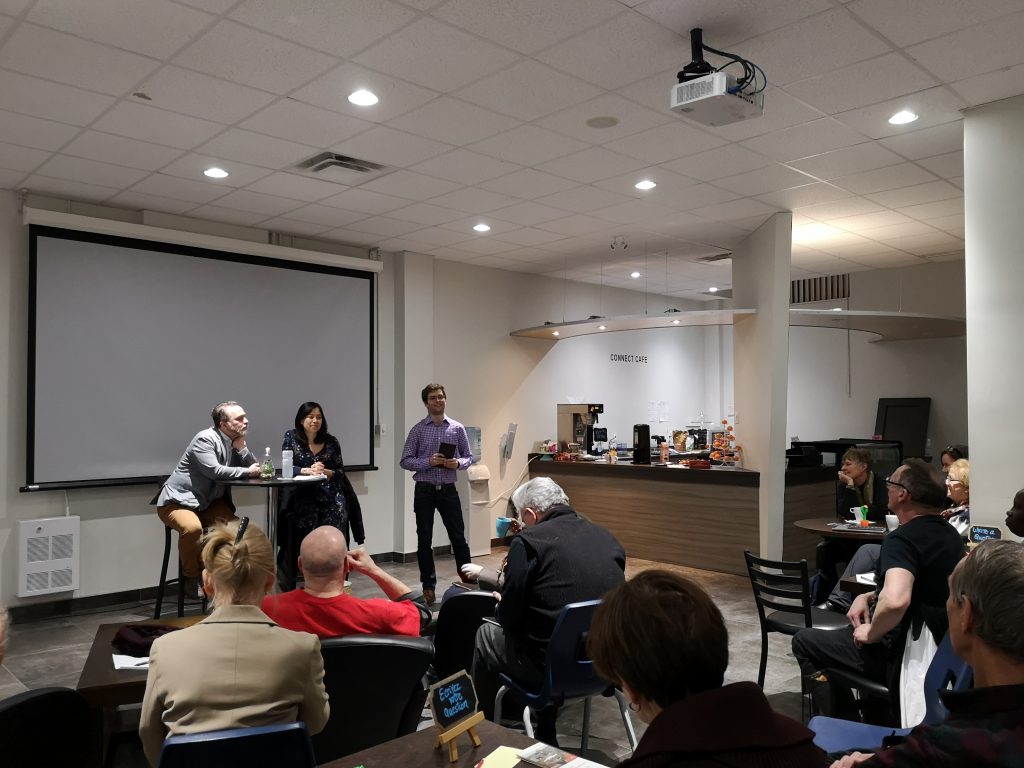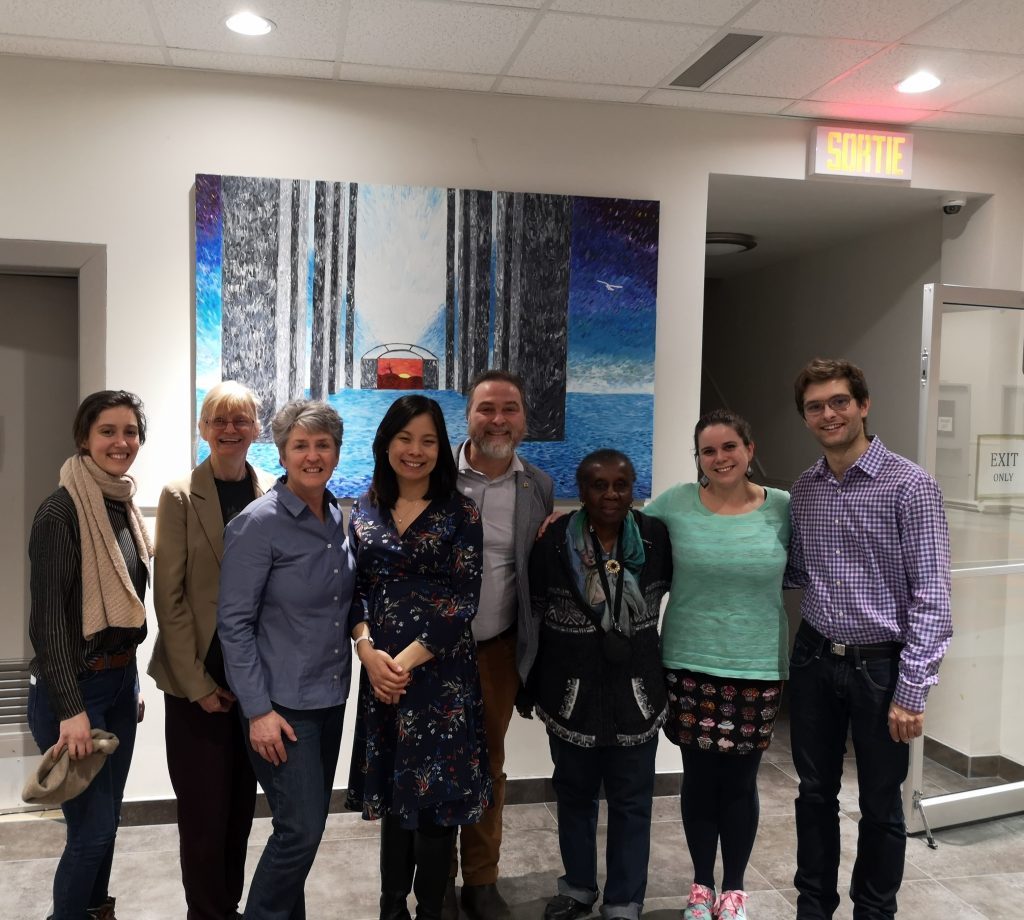This article was written as part of the Peter-McGill Community Council’s Citizen Journalism project, which aims to raise the voices of local residents, students and friends of the neighbourhood through writing, photos, videos and podcasting. If you would like to contribute please e-mail us at benevolat@petermcgill.org!

The bad weather of January 27 2020 did not stop about 30 citizens of Peter-McGill district from participating in a “café-discussion” on housing. Cathy Wong, city councillor for Peter-McGill district in Ville-Marie borough, and Richard Ryan, city councillor specialized in housing, were the invited speakers.
At 6:20 pm, the night starts when Andrew introduces our two speakers. They both will give a short presentation, and after that they will answer to the questions from the assistance. The meeting was done in French and in English.
Cathy Wong made a clear, concise and well documented presentation about housing in Peter-McGill district. She projected the image of a self-confident, friendly, open person. Her mastering of the question of housing gave right away confidence to the audience.
Ms. Wong reminded to all that housing is of municipal and provincial competence. The objective for the new dwellings is to have in 2021, 20% affordable, 20% social and 20% family homes. Presently, 1300 social dwellings are being built, and 3000 are in the process of being developed. La Coop de la Montagne verte is such an example of social dwellings.
Several themes were addressed by Ms. Wong and Mr. Ryan (through their talks and in the audience’s questions), such as:
- First buyers. The city is implementing a strategy to allow families to be owners. To encourage this, the city “works very hard” (according to Ms Wong) so that the new projects include elementary schools, green spaces, etc.
- Inoccupation rate. This rate is presently 1.6%, which is very low. The normal rate is 3% to allow for a good renewing of leases. With such a low rate, the short-term advice that the speakers gave is to make sure to sign the new lease before moving out of the old dwelling.
- The city will hire more inspectors to examine the unhealthy dwellings.
- Children’s Hospital. The promotor had promised to make social dwellings, so this led the city to change the zoning in that area. However, he denied his commitment, so now the city tries to sue him. The case is still unresolved.
- To the question “Do you plan to levy a tax for empty dwellings?” , the answer was “no”, but changes may be considered later.

The situation of “touristic dwellings” (which include touristic lodges and residences) – that is, more casually “Airbnb” – made for most of the discussions and questions. According to Mr. Ryan, it is a “complex” issue. The main parts of this issue, as described by both speakers, are :
- When a dwelling’s status moves from “residence” to “touristic”, the number of dwellings for residence decreases.
- There are about 400 touristic dwellings in the district, but presently nobody knows how many of them are illegal.
- The term “renoviction” means renovation of the dwelling followed by eviction of the tenants, in order to transform the dwelling into a touristic dwelling. Most tenants who endure renoviction cede to the owner’s condition, without fighting at the Régie du lodgement. Abusive evictions did occur in the past, but the city is now able to exercise a better control, thanks to specific by-laws.
- An owner (or a tenant with the owner’s authorization) can transform a residential dwelling into a touristic dwelling, but several conditions apply. That must be done in the correct zoning. In particular, starting May 1st, 2020, it will be possible to lease a dwelling for tourist purpose only if is the principal place of residence. Revenu Québec will send inspectors to enforce this bylaw; any violation could lead to a fine of 25 000$.
- Until now, there is no time limit for a permit for a touristic dwelling. However, a new bill (for autumn 2020) will allow the city to revoke this permit in case of abuse.

In summary, the meeting was very interesting: it allowed a direct contact between citizens and deciders. However, there might have been a little too much time devoted to touristic dwellings, as opposed to the day-to-day dwelling conditions (such as cost, healthiness, accessibility).
In any case, this meeting will certainly motivate each and every one to be involved in the decisions about their city!
Article by Philippe Finès
Photos by Corey Gulkin